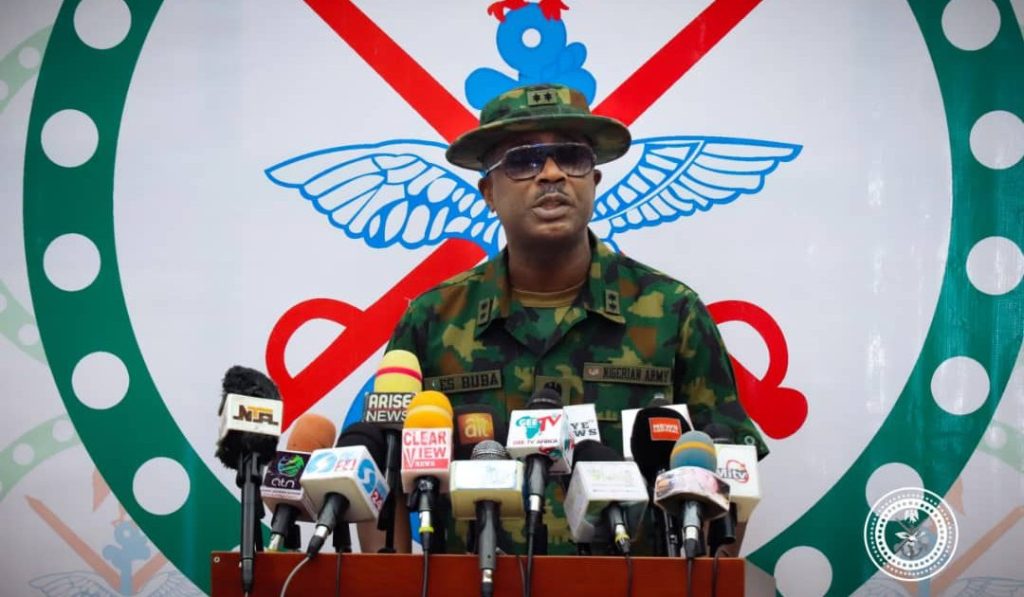The emergence of a new terrorist group known as ‘Lukarawas’ in Nigeria’s Sokoto and Kebbi states has become a pressing concern for the Defence Headquarters (DHQ). The group is reported to have migrated from Niger Republic and Mali, taking advantage of the recent political turmoil in these neighboring countries. The DHQ has cautioned local residents for their complacency and failure to report the presence of the new sect, which has begun to impose its ideology and levies on communities. Maj Gen Edward Buba, the Director of Defence Media Operations, noted that prior to a coup in Niger, joint security operations had effectively contained the threat posed by terrorists, underscoring how the breakdown in military cooperation has allowed extremist elements to infiltrate northern Nigeria.
In a related development, the DHQ has declared nine individuals as wanted terrorists, marking a notable shift as no bounties are offered for their capture. The list includes notorious figures such as Abu Khadijah and Abdurrahman, each leaving behind a history of violent activities. The police in Sokoto confirmed that the Lukarawas sect has been active in five local government areas, intensifying fears regarding its growing influence and operations. The DHQ disclosed that these developments reflect a broader trend of heightened instability in the Sahel region, where ongoing coups have contributed to an influx of extremist factions into Nigeria, complicating the security landscape.
Maj Gen Buba criticized the residents of northwest Nigeria for their role in facilitating the movement of extremist groups, stating that it is crucial for locals to inform authorities about any unusual activities. He expressed disappointment over the communities’ delayed reaction to the presence of ‘strangers,’ suggesting that the lack of immediate reporting hampers the military’s ability to combat terrorism effectively. The presence of the Lukarawas group resembles earlier threats, like Boko Haram, as they attempt to impose rigid social norms and transform local customs. Buba emphasized the need for community cooperation in identifying and reporting these groups promptly in order to enhance national security efforts.
The Nigerian military has launched a focused effort to counter the emergence of the Lukarawas and other extremist groups. Maj Gen Buba indicated that operations have intensified, leading to the deaths of 481 terrorists and the apprehension of 741 suspects across the country in October alone. Among the assets recovered are a significant cache of weapons and ammunition, showcasing the military’s ongoing efforts to dismantle these terrorist networks. With ongoing operations, military troops are reportedly succeeding in locating and neutralizing threats, thereby protecting vulnerable communities from extremist exploitation.
The military has also maintained its operational strategies, conducting simultaneous strikes on known terrorist strongholds and employing both air and ground forces effectively. The approach aims to dismantle the operational capabilities of these groups while salvaging local communities from their influence. Despite the loss of the Chief of Army Staff, Lt Gen T.A. Lagbaja, the military remains resolute in its mission to eradicate terrorism, drawing inspiration from his legacy as a fervent commander committed to defeating insurgency.
Overall, the fight against terrorism in Nigeria necessitates a multifaceted strategy that incorporates military action alongside community engagement. As Buba asserts, eradicating this new wave of extremism relies heavily on local support, cooperation, and timely information. The military’s success hinges on the partnership with citizens, who must recognize the devastating effects of accommodating terrorist groups. As the security situation evolves, the DHQ continues to monitor and adapt its strategies, working rigorously to protect the nation from the spread of violent extremism and restore stability in troubled regions.


